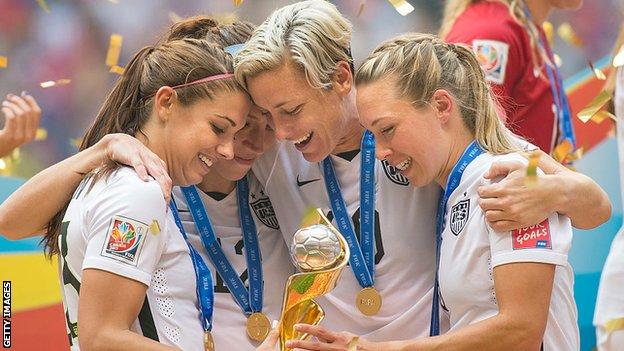This website uses cookies so that we can provide you with the best user experience possible. Cookie information is stored in your browser and performs functions such as recognising you when you return to our website and helping our team to understand which sections of the website you find most interesting and useful.

A new equal-pay agreement between the United States men's and women's teams has been hailed as potentially "changing the game around the world".
US Soccer has announced the teams will pool their World Cup prize money, along with their share of television and sponsorship revenues.
"These agreements have changed the game forever in the United States," said US Soccer president Cindy Parlow Cone.
"They have the potential to change the game around the world."
Women's squad players filed a discrimination lawsuit in 2019 and a settlement, which included a $24m (£17.7m) payout, was reached on that earlier this year. US Soccer said the new agreement was "a necessary and critical step to resolution".
"We now await the final approval of the settlement by the class members and the court," it added.
Two-time United States World Cup winner Alex Morgan called the agreement as a "historic" moment.
US Soccer had previously said it was difficult to level up prize money between the two teams because of the significant difference in amounts paid by Fifa to federations from the men's and women's tournaments.
"We hope that this agreement and its historic achievements in not only providing for equal pay but also in improving the training and playing environment for national team players will similarly serve as the foundation for continued growth of women's soccer both in the United States and abroad," said Becky Sauerbrunn, captain of the four-time World Cup winners.
The deals, which run through to the end of 2028, also guarantee that the women's team will play at equal-quality venues, stay in hotels of the same standard and be given an equal number of charter flights to travel to games.
As part of the deal, the men's team will now receive childcare benefits, which the women's team have had for more than 25 years.



 Africana55 Radio
Africana55 Radio 


